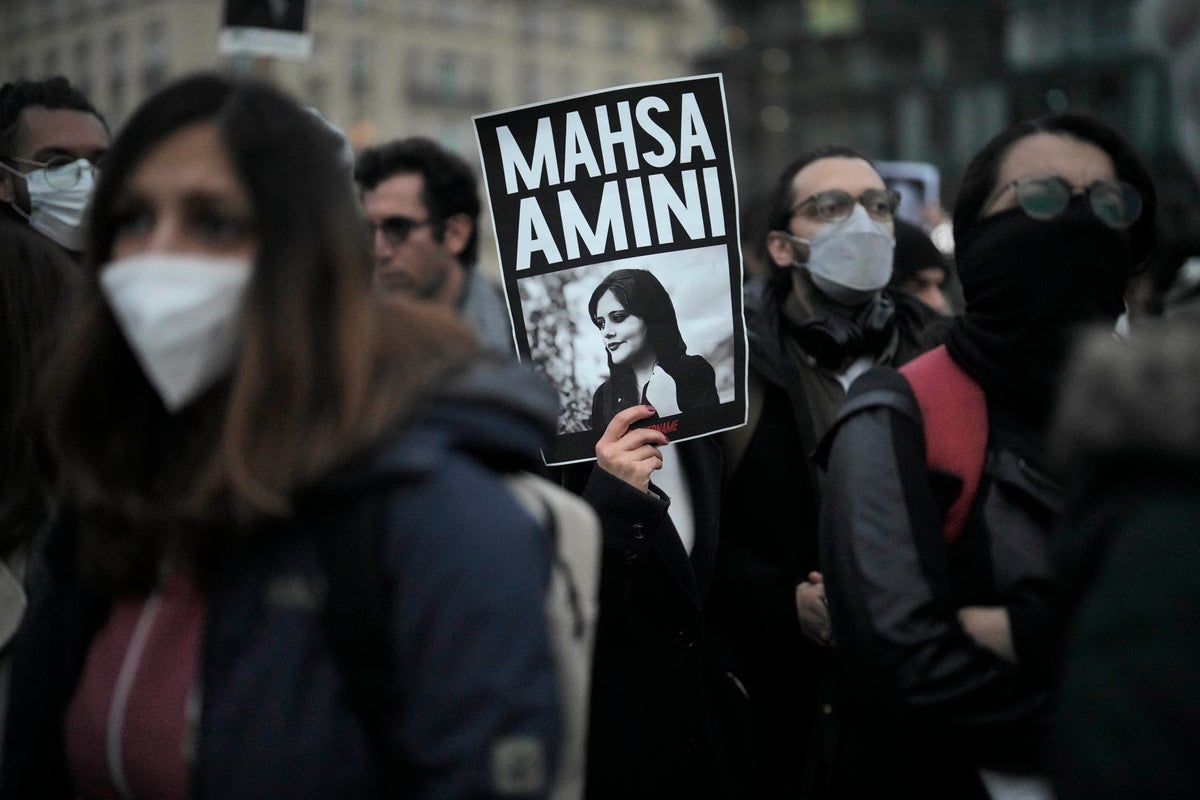
Protests that have erupted across Iran could topple the police force that monitors and arrests women who infringe the Islamic dress code, a prominent global human rights organisation has warned.
Rothna Begum, a senior researcher in the women’s rights division at Human Rights Watch, told The Independent thatIran’s morality police “could have their powers” removed because of the backlash they are facing.
Her comments come after Mahsa Amini, a 22-year-old Kurdish woman, died in police custody in mid-September.
Ms Amini was detained by the morality police for allegedly infringing Iran’s stringent rules on hijabs, sparking almost two weeks of protests.
Women’s rights are profoundly restricted in Iran and wearing a headscarf is compulsory in public for all women, with those who do not wear a hijab, or have some of their hair on display while wearing a hijab, facing punishments ranging from fines to imprisonment.
Morality police, also known as the ‘guidance patrol’, have been “emboldened” in Iran in recent months and years, said Ms Begum, who specialises in the Middle East and north Africa.
The researcher noted that women had been calling for the abolition of the compulsory hijab in Iran, adding that the protests were challenging the “wider pattern of repression”.
Ms Begum said: “I don’t think anyone was expecting these protests to happen. Iran should abolish the morality police and the compulsory hijab laws and repeal all discriminatory laws and policies against women.
“Women in Iran have a rich long history of defying repression and demanding their rights.
“While women have campaigned on a range of issues and have protested against a number of discriminatory laws and policies against women, including the compulsory hijab, with many sentenced to prison terms, this time we are seeing men and women, regular people, taking to the streets – and such protests are taking place all around the country.”
Dr Dima Dabbous, a regional representative of Equality Now, a global non-government organisation that promotes the rights of women and girls, told The Independent the Iranian government was “completely oblivious” to the wider international community.
Dr Dabbous added: “I fear for women in Iran; these women are on their own inside. Popular support within the country will not save them. In the region, feminist NGOs are very limited in how they operate and the extent to which they can mobilise. They cannot receive funding – that is how they are choked.
“The entire feminist movement in the region of the Middle East and north Africa is undermined by the authorities branding it as an agent of the West. That is the easiest way to kill them off, to destroy the movement. It is a tactic to downplay and negate the movement – to kill it symbolically. It is a classic excuse to get rid of internal dissent.”
Earlier this week, Mansoureh Mills, a researcher at leading human rights organisation Amnesty International, told The Independent the so-called morality police, set up in 2005, “enforces these abusive and discriminatory laws” and should be scrapped.
She also warned that the number of protesters being killed in Iran was higher than state TV figures claimed, with the Iranian authorities exhibiting a “pattern of distorting the truth” to conceal human rights abuses.
Protests in Iran have swept across more than 80 cities and towns in Iran, with women at the forefront of the protests, waving their hijabs, hurling them onto bonfires and chopping off their hair.
More than 1,200 protesters are estimated to have been arrested in the largest demonstrations to descend on Iran’s streets in nearly three years. Crowds have demanded that supreme leader Ayatollah Ali Khamenei be ousted as well as shouting “Woman, Life, Freedom!”, “We don’t want the Islamic republic” and “Death to the dictator”.
Ms Amini was arrested by the morality police in the Iranian capital of Tehran on 13 September, collapsing after being transported to a detention centre before dying later in hospital.







